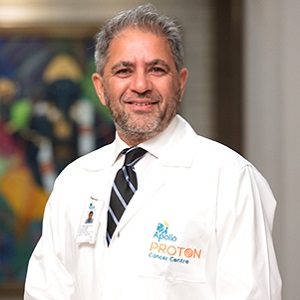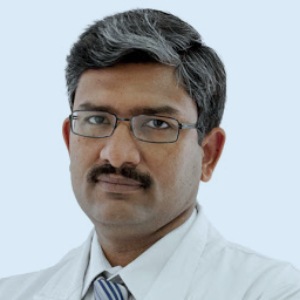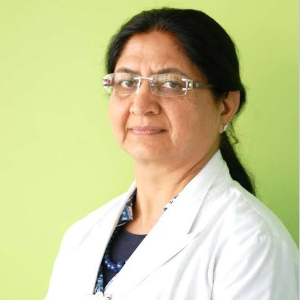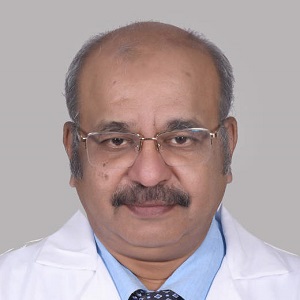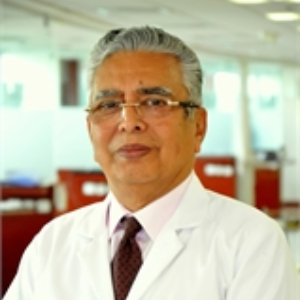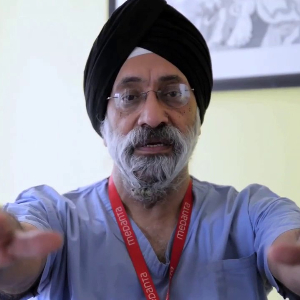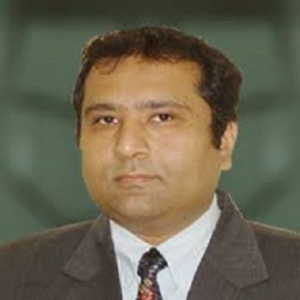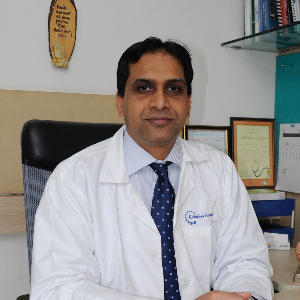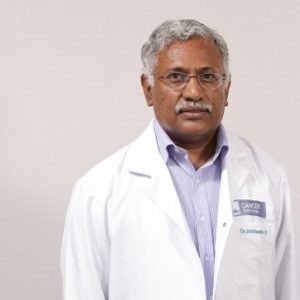Best Gamma Knife Radiosurgery Doctors in India
- Neuro Oncologist, Chennai, India
- Over 28 years’ experience
- Apollo Proton Cancer Centre
Profile Highlights:
- Dr. Rakesh Jalali is undoubtedly one of the top Radiation Oncologists in the country who is renowned for his high-precision radiation techniques.
- He provides a wide range of radiation treatments customized to treat different kinds of cancers.
- Dr. Jalali, who has a remarkable 28-year of experience in the field of Neuro-Oncology, is highly proficient in employing sophisticated radiation treatment procedures, such as Electron Beam Radiation treatment (3DCRT), IMRT, IGRT, VMAT, BRT, SABR, DIBH, Brachy Treatment, TBI, and TSET, as well as 4D Gated Radio Treatment. These treatments are carefully employed to treat various kinds of cancers such as brain tumors, breast cancer, lung cancer, prostate cancers, and many more.
- Top Neurosurgeon | Artemis Hospital | Gurugram, India
- 25+ years experience
- Artemis Hospital, Gurgaon
Profile Highlights:
- Dr. Aditya Gupta is one of the top Neurosurgeons in India functioning as the Chairperson of the Department of Neurosurgery & CNS Radiosurgery and Co-Chief of Cyberknife Centre at the Artemis Hospitals in Gurugram, India.
- He is renowned for pioneering advanced surgical techniques in treating various brain tumors, specializing in microsurgery and radiosurgery. His expertise extends to managing Movement Disorders with Deep Brain Stimulation (DBS), epilepsy surgery, nerve and brachial plexus surgeries, as well as treating brain aneurysms and AVMs. He is also highly skilled in spine surgery, having performed a wide range of procedures.
- Dr. Gupta graduated as a topper from All India Institute of Medical Sciences, New Delhi. He later served as Faculty and Associate Professor of Neurosurgery until 2009.
- Radiation Oncologist, Gurugram, India
- Over 32 years’ experience
- Medanta-The Medicity, Gurgaon
Profile Highlights:
- Dr. Tejinder Kataria is a globally renowned Radiation Oncologist whose pioneering contributions have significantly advanced cancer treatment in India.
- With over 35 years of experience, she has been instrumental in introducing cutting-edge technologies and establishing prominent oncology departments across prestigious institutions. She is currently the Chairperson of Radiation Oncology at Medanta – The Medicity in Gurugram, New Delhi.
- Dr. Kataria played a pivotal role in founding the Department of Radiation Oncology at Rajiv Gandhi Cancer Institute, New Delhi, and Artemis Health Institute, Gurugram. She also established the Division of Radiation Oncology at Medanta, Gurugram, where she continues to innovate and lead.
- Her interests lie in Stereotactic Radio Treatment (SBRT), Image-Guided Radio Treatment (IGRT), Intensity Modulated Radio Treatment (IMRT), 3-D Conformal Radiation (3D CRT), PET-CT, MRI, SPECT, DSA and CT-Simulator fusion for treatment planning.
- Top Radiation Oncologist | Apollo Hospital, New Delhi, India
- 20+ Years Experience
- Indraprastha Apollo Hospital, New Delhi
Profile Highlights:
- Dr. G K Jadhav is one of the leading radiation oncologists in India.
- He has a complex understanding of cancer biology, clinical care, and radiation physics.
- Dr. Jadhav has an experience of more than 20 years in the field of radiation oncology.
- Radiation Oncologist, Gurugram, India
- Over 40 years’ experience
- Artemis Hospital, Gurgaon
Profile Highlights:
- Dr. Subodh Chandra Pande is a well-known radiation oncologist in India. He has a long and rich clinical and teaching experience in the specialty of radiation oncology.
- He included a Dual Energy Linear Accelerator with Multi-Leaf Collimator at Bhagwan Mahaveer Cancer Hospital and Research Centre (BMCHRC), Jaipur & which was a first for the State of Rajasthan.
- Top Neurosurgeon | Medanta_ The Gurugram | India
- 30+ years’ experience
- Medanta-The Medicity, Gurgaon
Profile Highlights:
- Dr. V P Singh is a renowned Neurosurgeon with over 30 years of veteran experience. His competence in cranial, spinal, and peripheral nerves has helped him successfully perform 400+ Intracranial Aneurysm surgical procedures.
- Dr. Singh has also been credited for initiating the Gamma Knife Unit and epilepsy surgery program at All India Institute of Medical Sciences, New Delhi.
- He is proactively involved in the treatment of arteriovenous malformations by radiosurgery techniques and is currently the chairman of the Institute of Neurosciences, Medanta.
- Neurosurgeon, Gurugram, India
- 20 + years’ experience
- Medanta-The Medicity, Gurgaon
Profile Highlights:
- Dr. Sudhir Dubey is a distinguished neurosurgeon with an illustrious career spanning decades, marked by groundbreaking contributions to the field of neurosurgery.
- As the Chairman of Neurosurgery at Medanta, Gurugram, Dr. Dubey has performed over 10,000 neurosurgical operations, solidifying his reputation as one of the foremost experts in the field.
- Dr. Dubey’s academic journey is as impressive as his clinical achievements. He graduated with top honors from King George’s Medical College, where he was awarded the prestigious Sir Rupkishan Das Gold Medal in his final year of MBBS.
- Top Neuro Surgeon & Spine Surgeon | Kokilaben Hospital, Mumbai, India
- 26+ Years Experience
- Kokilaben Dhirubhai Ambani Hospital
Profile Highlights:
- Dr. Abhaya Kumar is a leading name in the field of Neurosurgery in India and is currently associated with Kokilaben Dhirubhai Ambani Hospital, Mumbai as the Head and Consultant of Neurosurgery and Minimally Invasive Spine Surgery.
- He is an expert in Minimally Invasive Spine Surgery, Brain surgery, and Stereotactic Radiosurgery. He has performed more than 3500 spine surgeries and 5500 brain surgeries in KDAH alone.
- His primary focus includes Minimally Invasive Spine Surgery (MISS). Till date, he has handled over 2500 Minimal Invasive spine cases in the hospital with an outstanding success record.
- In addition, he has treated over 300 cases of Craniovertebral Junction anomalies and performed surgeries for approximately 3000 brain tumors and over 500 spinal cord tumors. He frequently utilizes advanced technologies like Intraoperative MRI (IMRIS), neuro-navigation, stereotaxy, and neuroendoscopy in his procedures.
- Radiation Oncologist, Chennai, India
- Over 25 years’ experience
- Apollo Cancer Centre
Profile Highlights:
- Dr. Mahadev P is a radiation oncologist with 25+ years of experience and has played a major role in starting the Diplomate of National Board course in Radio Treatment in 2005.
- After getting trained in Australia, Dr. Mahadev P started Prostate Brachy Treatment at Apollo Specialty Cancer Hospital.
- Dr. Mahadev is also trained in Cyberknife radiosurgery – the only system in the world to treat tumors in the body with sub-millimeter accuracy.
- Radiation Oncologist, Chennai, India
- Over 24 years’ experience
- Apollo Cancer Centre
Profile Highlights:
- Dr. Rathna Devi is a senior Radiation Oncologist who has an experience of 24 years in the field.
- She completed MBBS from M.S. Ramaiah Medical College, Bangalore University, and a Diploma in Radio Treatment from Madras Medical College, Dr. MGR Medical University.
- Dr. Rathna Devi’s areas of expertise include Cranial Cyberknife Radiosurgery, Intensity Modulated Radio Treatment (IMRT), and Stereotactic Body Radio Treatment (SBRT).
Best Gamma Knife Radiosurgery Hospitals in India
- City: Gurugram, India
Hospital Highlights:
- One of India’s best and largest multi-specialty hospitals, Medanta was built with the aim to bring India to the highest standards of medical care. The hospital has been providing the best medical services to its patients, since its inception, with care, commitment, and compassion.
- Equipped with 1250 beds, the hospital was founded by Dr. Naresh Trehan in the year 2009 with an aim to provide the best medical care at affordable costs. The hospital is spread across 43 acres and includes 45 operation theatres and 350 beds dedicated solely to ICU. The hospital includes over 800 doctors, and more than 22 specialty departments and has a dedicated floor for individual specialty in order to offer the best services under one roof.
- The hospital is considered one of the premier institutes in India for Cardiac Care and includes staffs and members of high caliber. The hospital has 6 distinct centers of excellence.
- City: Gurugram, India
Hospital Highlights:
- Artemis Hospital, established in 2007 in Gurugram, India, is a leading multi-specialty institution known for its excellence in patient care and advanced medical technology, offering comprehensive services across specialties like Cardiology, Oncology, Neurology, Orthopedics etc.
- Renowned for its patient-focused care, Artemis Hospital combines state-of-the-art infrastructure with a team of internationally trained doctors and surgeons, ensuring the highest standards of medical treatment.
- Accredited by JCI and NABH, Artemis Hospital meets global healthcare quality and safety standards, reflecting its commitment to providing compassionate, personalized care.
- The hospital is recognized for utilizing cutting-edge diagnostic and ther*peutic techniques, ensuring patients receive accurate diagnoses and effective treatments tailored to their needs.
- City: Chennai, India
Hospital Highlights:
- The Apollo Proton Cancer Centre in Chennai is the most sought-after private cancer hospital in India. It is an integrated facility that provides cutting-edge, all inclusive cancer treatment to patients all over the globe.
- The hospital is a part of the renowned Apollo Group which has a large network of over 74 hospitals in India and across the globe. Out of the 74 hospitals, 21 of them are cancer centres. However, Apollo Proton Cancer Centre is the only cancer hospital to have JCI accreditation.
- The Centre, which was established on the principles of excellence and expertise, unites a formidable medical staff led by some of the most illustrious figures in cancer treatment.
- The hospital follows the global ASTRO Model Policy. It is the same global policy which is followed by countries like USA, UK, and Europe.
- Apollo Proton Cancer Centre is among the very few hospitals in India to receive patients from First World countries such as USA, Canada, New Zealand, Australia, Singapore, Thailand, etc.
- Apart from that, it is also the first hospital in Chennai to receive patients from several countries like Uzbekistan, Kazakhstan, Turkmenistan, Georgia, Armenia, Azerbaijan, SAARC countries (Bangladesh, Nepal, Sri Lanka, Maldives, Bhutan, Afghanistan, and Pakistan), South Africa, Turkey, Egypt, etc.
- In fact, there is a dedicated team at the Apollo Proton Cancer Centre that serves only international patients. Thus, on a monthly basis, the Centre receives patients from across 32 countries.
- Moreover, there are certain treatments in Apollo Proton Cancer Centre that are not available in any other centre. APCC addresses all types of possible cancers that are usually not covered by any other centre.
- City: New Delhi, India
Hospital Highlights:
- Over the last 33 years, the Fortis Escorts Heart Institute has set new standards in cardiac treatment with groundbreaking research. It is now known around the world as a centre of expertise for Cardiac Bypass Surgery, Interventional Cardiology, Non-invasive Cardiology, Paediatric Cardiology, and Paediatric Cardiac Surgery.
- The hospital has cutting-edge laboratories that perform a wide range of diagnostic tests in Nuclear Medicine, Radiology, Biochemistry, Haematology, Transfusion Medicine, and Microbiology.
- Fortis Escorts Heart Institute boasts a diverse group of bright and experienced doctors who are backed up by a team of highly qualified, experienced, and devoted support professionals as well as cutting-edge equipment such as the recently installed Dual CT Scan.
- Approximately 200 cardiac doctors and 1600 personnel currently collaborate to manage over 14,500 admissions and 7,200 emergency situations each year. The hospital now has a 310-bed infrastructure, as well as five cath labs and a slew of other world-class amenities.
- City: Gurugram, India
Hospital Highlights:
- Fortis Memorial Research Institute (FMRI) is a premier multi-super-specialty, quaternary care hospital, known for its exceptional international faculty, top-tier clinicians, super-sub-specialists, and specialized nurses, all supported by cutting-edge technology.
- It is the flaship hospital of Fortis Healthcare Limited, part of IHH Healthcare Berhad, a leading integrated healthcare services provider in India. As one of the country’s largest healthcare organizations, Fortis operates 28 healthcare facilities with over 4,500 operational beds (including O&M facilities) and more than 400 diagnostic centers (including joint ventures).
- Recognized as one of the top hospitals in India, FMRI serves as a leading referral center and aspires to be the ‘Mecca of Healthcare’ for India and beyond. Its 11-acre campus is a testament to its commitment to providing world-class healthcare.
- Accredited by JCI and NABH, FMRI is dedicated to maintaining the highest standards of healthcare quality and safety, ensuring that every patient receives the best possible care. The hospital’s reputation is further enhanced by its state-of-the-art facilities and innovative medical practices.
- City: New Delhi, India
Hospital Highlights:
- The Indian Spinal Injuries Center (ISIC), provides state-of-the-art facilities for the management of all types of spinal ailments.
- Staffed with internationally trained, acclaimed, and dedicated spine surgeons, the hospital provides cutting-edge medical & surgical technology. The hospital provides comprehensive management of spinal injury, back pain, spinal deformities, tumors, osteoporosis, etc.
- The hospital performs motion-preserving spine surgeries including disc replacement and dynamic fixation, and minimally invasive spine surgeries such as endoscopic disc excision.
- The orthopedic service of the hospital covers all orthopedic ailments including trauma, joint diseases & replacements, oncology, pediatric orthopedics & upper limb ailment.
- City: Faridabad
Hospital Highlights:
In the sprawling city of Faridabad, where healthcare needs are diverse and ever-evolving, one institution has consistently stood out as a beacon of excellence in the field of medicine—Marengo Asia Hospital. Established with a vision to provide world-class healthcare services to the community it serves, Marengo Asia Hospital has emerged as a trusted name synonymous with quality, compassion, and innovation in healthcare.
- City: New Delhi, India
Hospital Highlights:
- Indraprastha Apollo Hospital is a 700-bedded multispecialty hospital in the heart of the capital of India. It is a part of Apollo Hospital group, one of India’s most reputed healthcare chains. Indraprastha Apollo Hospital has been accredited by Joint Commission International, making it the first internationally accredited hospital in the country in 2005.
- There are 52 specialties in the hospital with one of the best cardiology centers in the country. The hospital is also equipped with State of the art infrastructure facilities with the largest Sleep Lab in Asia and the largest number of ICU bed facilities in India.
- The latest and highly advanced technologies that are installed in the hospital include Da Vinci Robotic Surgery System, PET-MR, PET-CT, Cobalt-based HDR, Brain Lab Navigation System, Tilting MRI, Portable CT scanner, 3 Tesla MRI, 128 Slice CT scanner, DSA Lab, Endosonography, Hyperbaric Chamber and Fibro scan.
- City: New Delhi, India
Hospital Highlights:
- One of the well-regarded providers in India committed to the highest standards of clinical excellence and patient care, Max Super Specialty Hospital is a part of Max Healthcare, which is the second-largest healthcare chain in India. Regarded as one of the most well-regarded healthcare providers in the country, Max Super Specialty Hospital is committed to the highest standards of clinical excellence as well as patient care. The hospital is also equipped with the latest technology as well as cutting-edge research. The hospital is known to deliver and ensure the highest level of patient care.
- The hospital has more than 500 beds and offers treatment for over 35 specialties. The hospital also holds the credit of having installed the first Brain Suite in Asia. This is a highly advanced Neurosurgical machine that allows MRI to be taken while surgery is ongoing.
- Other advanced and latest technologies are also installed in the hospital such as the 1.5 Tesla MRI machine, 64 Slice CT Angiography, 4D ECHO, LINAC, and 3.5T MRI machine.
- City: Kolkata, India
Hospital Highlights:
- Founded in 2017, the HCG EKO Cancer Centre is a committed, all-inclusive cancer care facility in Kolkata.
- The hospital was collaboratively established by India’s leading cancer care provider HCG (HealthCare Global Enterprises Ltd.), and EKO Diagnostic Pvt. Ltd., a top diagnostic and imaging chain in Eastern India.
- With 88 beds, the hospital provides a full spectrum of services including diagnosis, prevention, screening, second opinions, treatment, rehabilitation, follow-up, and palliative care.
- Additionally, the hospital contains a day-care chemotherapy ward, Neutropenic ward, medical ICU, pharmacy, blood bank, and an IPD wing.
- At HCG EKO Cancer Centre Kolkata, a large team of cancer experts with experience in medical oncology, surgical oncology, radiation oncology, hemato oncology, BMT, and nuclear medicine collaborate to offer a variety of treatment options under one roof.
- Furthermore, the hospital is also known for employing the most advanced radiation technology such as, the Radixact, a next-generation TomoTherapy equipment that provides greater radiation delivery precision.
Gamma Knife Radiosurgery
Purpose
Gamma Knife radiosurgery is considered a safer alternative to standard brain surgery i.e. neurosurgery. Standard brain surgery requires incisions in the scalp, an opening in the skull as well as the membranes surrounding the brain. Then your surgeon needs to dissect into the brain tissue. However, these steps are not required with gamma knife radiosurgery.
Gamma Knife radiosurgery is considered when a tumor or other abnormality in the brain is difficult to reach with standard neurosurgery. It is also preferred by patients by aren’t healthy enough to undergo standard surgery or by patients who prefer a lesser invasive treatment.
In some cases, Gamma Knife radiosurgery has a lower risk of side effects as compared to other types of radiation therapies. Compared to conventional radiation therapy which requires up to 30 days of treatment, gamma knife radiosurgery can be completed in a single day.
This procedure is most usually used to treat the following conditions-
Brain tumor: Gamma knife radiosurgery is quite useful in the management of small noncancerous and cancerous brain tumors.
Radiosurgery can damage the genetic material in the tumor cells. These cells lose their ability to reproduce and thus they die leading to the tumor to gradually shrink.
Arteriovenous malformation (AVM): AVMs are abnormal tangles of veins and arteries in the brain. In an AVM, blood flows from the arteries to the veins, bypassing smaller blood vessels which are also known as capillaries. AVMs, if left untreated, may “steal” the normal blood flow from the brain. This can cause a stroke and cause bleeding in the brain.
Gamma Knife Radiosurgery can effectively destroy the AVM and cause the blood vessels to close off over some time.
Trigeminal neuralgia: This is a disorder of one or both of the trigeminal nerves, which work to relay sensory information between your brain and areas of your forehead, cheek and lower jaw. This disorder can cause disabling facial pain which gives a feeling resembling an electric shock.
After this treatment, people will experience pain relief within a few days to a few months.
Pituitary tumors: Tumors of the bean-sized gland, located at the base of the brain can also cause multiple problems. The pituitary gland is responsible for the hormones in your body that control several functions, such as your metabolism, stress response, and sexual function.
Gamma Knife Radiosurgery can help in shrinking the tumor and it will also lessen the disruption of pituitary hormone regulation.
Acoustic neuroma: An acoustic neuroma also termed as a vestibular schwannoma is a noncancerous tumor that develops along the nerve of balance and hearing which leads from your inner ear to the brain.
When this tumor puts any pressure on the nerve, you can experience problems such as loss of hearing, loss of balance, dizziness as well as ringing in the ear. As the tumor continues to grow, it can even put pressure on your nerves affecting sensations and muscle movement in the face as well.
Gamma Knife Radiosurgery can help to stop the growth of an acoustic neuroma.
Preparation
First, the physician will be gathering your medical history and will be performing a complete physical exam. You might also need to undergo additional tests. If you are allergic to any medications or anesthetic agents have a heart pacemaker implanted medication pump, aneurysm clip, implanted nerve stimulator, metal from trauma, metal implants, severe lung disease, cochlear implant, spine stabilization hardware or esophageal reflux, then you need to inform your doctor. You also need to inform him/her if you are unable to lie flat on your back for 30 to 60 seconds, or if you suffer from claustrophobia.
You will need to arrange for a friend or family member to go with you on the day of your procedure. A nurse will inform you a day before the procedure to confirm the arrival time and answer any queries that you might have. On the evening before the procedure, do not consume any food or drink after midnight. Also, remember to wash your scalp properly.
Remember to wear your hair loose and avoid any clips, bands or pins. Do not use any hair spray or any other kind of styling product.
On the morning of the treatment, take your medications with sips of water. Bring all prescribed and over-the-counter medications with you. Also, make sure that you wear comfortable clothing. Avoid wearing a shirt that needs to be put on and taken off over the head.
Procedure
First, you will lie on a bed that slides into the Gamma Knife machine. Your head frame will be securely attached to a helmet inside the machine.
An intravenous tube will deliver fluids to your bloodstream so that you are hydrated during the procedure. Soon the bed you lie on will be sliding into the gamma knife machine.
The time taken for the procedure to be completed can sometimes be less than an hour. In some cases, it can take around four hours. Usually, this depends on how big the target is.
You will not feel the radiation, during the procedure, nor will you hear any noise during the procedure. There will be a microphone through which you will be able to communicate with the doctors.
Though Gamma Knife radiosurgery is an outpatient procedure in some cases, an overnight stay at the hospital might be required.
After the Procedure
Once the procedure is complete, the head frame will be removed and you will be able to eat and drink again. If you experience headache, nausea or vomiting after the procedure, you will be receiving the appropriate medications. You might experience minor bleeding or tenderness at the pin sites.
It is recommended that you ask a friend or family member to stay with you for the first night after the treatment to watch for any side effects. For a minimum of one week, keep your head in an elevated position on a pillow. This can help lessen any swelling at the pin sites as well as help in minimizing pressure within your head.
How successful the treatment is, depends on several factors including the size, location, type of lesion, your personal medical history and several other factors. It is best to discuss your expectations and outlook with your doctors before the procedure.
Risks
Since Gamma Knife radiosurgery doesn’t involve surgical incisions, it is less risky as compared to traditional neurosurgery. In traditional neurosurgery, there are potential complications which are associated with anesthesia, bleeding and infection.
Usually, any early complications or side effects are temporary. Some patients can experience mild headaches, a tingling sensation on the scalp, nausea or vomiting. Sometimes, there might be other side effects too, which can include fatigue, swelling or scalp and hair problems.
Video explanation
Possible side-effects
Although Gamma Knife is a safe and widely accepted procedure, the patient may experience the following side-effects/discomforts during and after procedure:
- Local discomfort of the scalp at the sites where pins are inserted.
- Numbness of the scalp around pin, which may resolve over a day or two.
- Mild Headache & nausea, resolving rapidly.
FAQs
How effective is Gamma Knife surgery?
Gamma Knife Radiosurgery is considered quite effective. Seventy to 90 percent of AVMs are completely obliterated. Gamma Knife radiosurgery has prevented tumour growth in 97 percent of patients.
Is the Gamma Knife painful?
It is bloodless, virtually painless, does not result in hair loss and has a rapid return to pre-treatment activities.
How long does Gamma Knife surgery last?
30 minutes to 3 hours depending on the plan.

